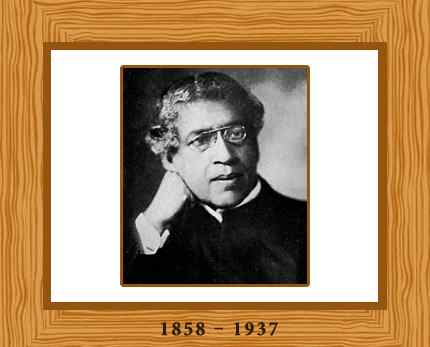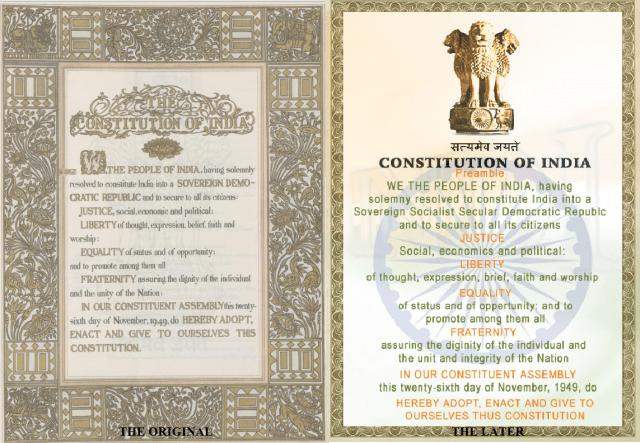Let's spread the joy of Reading. Developing reading habit and information literacy skills among students and teachers is the primary objective of a school library.
Wednesday, December 9, 2020
Wednesday, December 2, 2020
GSP AUDIT
Students from grade 5-12 can register and participate individually by their own.Last date of submission audit is 11 december 2020. Students to make a week observation at home for completion of different areas of audit as electricity audit ,water audit etc. and inform to the Class teachers, so that Class Teacher have record of no.of participation.
https://greenschoolprogramme.org/audit/Audit@home
link for GSP AUDIT
Last date for audit 11/12/2020
KALA UTSAV COMPETITION - 2020
Greetings of the day !!!!!
Dear students,
This is to inform you that NCERT is organising a KALA UTSAV COMPETITION - 2020 through online mode and hence has asked to submit entries of students of standard IX to XII in the field of Visual Arts.
You are therefore required to submit your entry/entries in any one or more of the following Art Theme by 09:00 p.m. today as Regional Level Competition will take place on 04-12-2020:
S.No) Art Theme
👇🏻👇🏻👇🏻👇🏻👇🏻👇🏻
1) Drawing (2-D)
2) Painting(2-D)
3) Print
4) Sculpture(3-D)
5) Traditional Toys & Games
You can send your work on the no. 9870533342 directly via whatsapp.
In case of any query, you can directly contact me(Barkha, TGT - Art Education) on the no. as mentioned above.
Tuesday, December 1, 2020
Acharya Jagadish Chandra Bose
Jagadish Chandra Bose

Sir Jagadish Chandra Bose is one of the most prominent first Indian scientists who proved by experimentation that both animals and plants share much in common. He demonstrated that plants are also sensitive to heat, cold, light, noise and various other external stimuli. Bose contrived a very sophisticated instrument called the crescograph, which could record and observe plants minute responses to external stimulants. It was capable of magnifying the motion of plant tissues to about 10,000 times of their actual size and, in doing so, found many similarities between plants and other living organisms.
Early Life and Career Path:
Jagadish Chandra Bose was born on 30 November, 1858 at Mymensingh, now in Bangladesh. He was raised in a home committed to pure Indian traditions and culture. He received his elementary education from a vernacular school, because his father believed that Bose should learn his own mother tongue, Bengali, before studying a foreign language like English.
Later he attended St. Xavier’s School at Kolkata and passed the Entrance Examination for Calcutta University.
Bose attended the University of Cambridge studying natural sciences after graduating with a physics degree from Calcutta University. He returned to India in 1884 after completing his B.Sc. degree from Cambridge University and was appointed professor of physical science at Presidency College, Calcutta (now Kolkata).
In 1917 Bose left his professorship and established the Bose Institute at Calcutta which was initially devoted principally to the study of plants. He was its director for twenty years until his death.
Famous Experiment:
The central hall of the Royal Society in London was jam-packed with famous scientists on May 10, 1901. Everyone seemed to be curious to know how Bose’s experiment will demonstrate that plants have feelings like other living beings and humans. Bose chose a plant whose roots were cautiously dipped up to its stem in a vessel holding the bromide solution, which is considered a poison. He plugged in the instrument with the plant and viewed the lighted spot on a screen showing the movements of the plant, as its pulse beat, and the spot began to and fro movement similar to a pendulum. Within minutes, the spot vibrated in a violent manner and finally came to an abrupt stop. The whole thing was almost like a poisoned rat fighting against death. The plant had died due to the exposure to the poisonous bromide solution.
The event was greeted with much appreciation and applause; however some physiologists were not content, and considered Bose as an intruder. They harshly knocked the experiment but Bose did not give up and was confident about his findings.
Using the crescograph, he further researched the response of the plants to fertilizers, light rays and wireless waves. The instrument received widespread acclaim, particularly from the Path Congress of Science in 1900. Many physiologists also supported his findings later on, using more advanced instruments.
Later Life and Death:
Bose authored two illustrious books; ‘Response in the Living and Non-living’ (1902) and ‘The Nervous Mechanism of Plants’ (1926). He also extensively researched the behavior of radio waves. Mostly known as a plant physiologist, he was actually a physicist. Bose made improvements on another instrument called ‘the coherer’, for detecting the radio waves.
He was knighted in 1917 and elected the Fellow of the Royal Society in 1920 for his amazing contributions and achievements. He died aged 78, on 23 November in 1937, in Giridih, India.
Friday, November 27, 2020
Friday, November 13, 2020
Thursday, November 12, 2020
National Book Week Celebration
We are celebrating National Book Week From 7th to 13th November, 2020.
Theme for this year is "Passport To Tomorrow".
Different activities have been designed.
Class 6 Designing a Book Mark and Book Jacket.
Class 7 Slogan writing on Importance of Books.
Class 8 Quotation writing on the Importance of Book.
Class 9 Poster Making on the Importance of Book.
Class 10 Prepare a Power Point Presentation on National Book Week.
Class 11 Prepare a Power Point Presentation on Open Educational Resources.
Class 12 Essay writing on "Virtual Lerning VS Traditional Learning".
National Education Day
The Central Government, with a resolution on September 11, 2008, declared November 11 as National Education Day.
The first National Education Day celebrations were inaugurated by then President of India Pratibha Patil on November 11, 2008 at Vigyan Bhawan, New Delhi.
Maulana Azad "laid the base for higher education and for technological and scientific research and education that was instrumental in industrialisation and the recent emergence of knowledge-based industries".
The first Indian Institute of Technology, IIT Kharagpur, was established by Maulana Abul Kalam Azad.
Maulana Azad once said that Schools are laboratories that produce future citizens of the country. In his address to the first meeting of the Central Advisory Board of Education (CABE), Maulana Azad said: "The primary aim of any system is to create balanced minds which cannot be misled."
Apart from IIT Kharagpur, University Grants Commission (UGC), All India Council For Technical Education, Maulana Abul Kalam Azad was also responsible for setting up Indian Council for Cultural Relations (ICCR), Sahitya Academy, Lalit Kala Academy, Sangeet Natak Academy and Council of Scientific and Industrial Research (CSIR).
Maulana Azad was posthumously awarded Bharat Ratna -- India’s highest civilian award -- in 1992.
Monday, November 9, 2020
Monday, November 2, 2020
PTM November 2020
प्राचार्य महोदय के निर्देशानुसार सभी कक्षा अध्यापको को सूचित किया जाता हैँ की PTM का आयोजन कक्षा 10 वीं से लेकर 12वीं तक का दिनांक 02.11.2020 को किया जायेगा व समय इस प्रकार रहेगा l
कक्षा समय
X प्रातः 9.00 बजे
XII प्रातः 10.00 बजे
XI प्रातः 11.00 बजे
कक्षा 6वीं से लेकर 9 वीं की PTM का आयोजन दिनांक 03.11.2020 को इस समयानुसार होगा l
कक्षा समय
IX प्रातः 9.00 बजे
VIII प्रातः 10.00 बजे
VII "11.00 "
VI दोपहर 12.00 बजे
सभी कक्षा अध्यापको से निवेदन हैँ की परीक्षा परिणाम का संकलन करें व अभिभावको को मीटिंग के लिए सूचित करें l कक्षा अध्यापक अपनी कक्षा की मीटिंग के पूर्व प्राचार्य महोदय को सुचना देवे l कक्षा के सभी विषय अध्यापक मीटिंग में उपस्थित रहे l
परीक्षा विभाग
Kv रेवाड़ी
Saturday, October 31, 2020
राष्ट्रीय एकता दिवस
31/10/ 2020 को राष्ट्रीय एकता दिवस के शुभ अवसर पर निम्नलिखित गतिविधियों का आयोजन किया -
1 एकता प्रतिज्ञा (Unity pledge)
2- एकता दौड़
3-निबंध प्रतियोगिता(कक्षा 6 से लेकर 8 तक का विषय है- राष्ट्रीय एकता) (कक्षा 9 से लेकर 12 तक का विषय है- अखंड भारत के निर्माण में सरदार वल्लभभाई पटेल का योगदान।
Friday, September 18, 2020
हिंदी पखवाड़ा आयोजन 2020-2021
केंद्रीय विद्यालय कॉन्सिवास रेवाड़ी
हिंदी पखवाड़ा आयोजन 2020-2021
दिनांक 11 सितंबर से 25 सितंबर 2020
कार्यक्रम सूची
दिनांक कार्यक्रम।
11.9.20। उद्घाटन समारोह
1. दीप प्रज्वलन व सरस्वती वंदना
2. हिंदी के महत्व पर भाषण। (सृष्टि, 10ब)
3. कविता पाठ (कोमल ,9A )
4. हिंदी गीत। (पार्थ, 7ब)
5. प्राचार्य द्वारा संबोधन
6. धन्यवाद ज्ञापन
19.9.2020 1. निबंध लेखन प्रतियोगिता (कक्षा 9 से 12)
(विषय - वर्तमान में हिंदी भाषा की स्थिति,250शब्दों मे)
2. नारा लेखन (कक्षा छठी से आठवीं)।
(श्रीमती पूनम यादव व श्री चन्द्र शेखर यादव)
21.9.20 .आशु भाषण
प्रतियोगिता
(श्री भरत लाल मीणा, श्री लक्ष्मण )
22.09.20. वाद- विवाद प्रतियोगिता
(विषय- किसी राष्ट्र के विकास के लिए एक राष्ट्र भाषा आवश्यक,पक्ष व विपक्ष में विचार)
( श्री लक्ष्मण, श्रीमती पूनम यादव)
23.9.20 राजभाषा हिन्दी प्रश्नोत्तरी ( शिक्षक गण हेतु)
(श्री लक्ष्मण, श्री सी. एस यादव, श्रीमती पूनम ,श्री बी. एल मीणा)
23.09.20 चित्रकला प्रतियोगिता (कक्षा 6 से 12,)
( श्रीमती बरखा सिंह, श्रीमती पूनम यादव)
24.09.20 1. काव्य पाठ प्रतियोगिता
(श्रीमती पूनम यादव, श्री चन्द्र शेखर यादव)
25.9.20 प्रश्नोत्तरी प्रतियोगिता एवं समापन समारोह
( श्री लक्ष्मण, श्री चंद्रशेखर यादव,श्रीमती पूनम यादव, श्री भरत लाल मीणा)
प्रतियोगिताओं के संबंध में विद्यार्थियों के लिए सामान्य निर्देश:
1. विद्यार्थी हिंदी पखवाड़े की गतिविधियों में बढ़-चढ़कर हिस्सा लेंगे।
2. निबंध लेखन प्रतियोगिता में (कक्षा 9 से 12)के विद्यार्थी 'वर्तमान में हिंदी भाषा की स्थिति' पर 250 शब्दों में निबंध लिखकर अपने कक्षा अध्यापक को भेजेंगे।
3. नारा लेखन प्रतियोगिता में विद्यार्थी हिंदी भाषा से संबंधित नारा लिखकर अपने कक्षा अध्यापक को भेजेंगे ।
4. कविता पाठ प्रतियोगिता में विद्यार्थी देशभक्ति की कविताओं का काव्य पाठ करेंगे। उसका वीडियो बनाकर कक्षा अध्यापक को व्हाट्सएप करेंगे। कविता की अवधि अधिकतम 2 मिनट होगी।
5. 'चित्रकला प्रतियोगिता' में विद्यार्थी हिंदी के महान साहित्यकारो, कवियों, लेखकों व कवयित्रियों के चित्र बनाकर अपने कक्षा अध्यापक को व्हाट्सएप करेंगे।
(सभी कक्षा अध्यापक( उपरोक्त सभी गतिविधियों की)अपनी - अपनी कक्षा की सर्वश्रेष्ठ तीन - तीन प्रतिलिपि प्रतियोगिता के संयोजक को भेजेंगे।)
6. आशुभाषण , वाद विवाद वह प्रश्नोत्तरी प्रतियोगिताओं का आयोजन ऑनलाइन होगा।
Thursday, August 6, 2020
Friday, July 31, 2020
मुंशी प्रेमचंद और उनके साहित्य

हिंदी और उर्दू के महानतम लेखकों में से एक मुंशी प्रेमचंद का जन्म 31 जुलाई 1880 को उत्तर प्रदेश के वाराणसी के लमही ग्राम में हुआ था। मुंशी प्रेमचंद का वास्तविक नाम धनपत राय था।
एक सदी बीत जाने के बाद भी प्रेमचंद की कृतियों ने अपनी प्रासंगिकता नहीं गंवाई है। प्रेमचंद आज भी उतने ही प्रासंगिक हैं जितने वे स्वतंत्रता से पूर्व के समय में थे। उनके साहित्य और जिन चरित्रों का उन्होंने चित्रण किया, जिन समस्याओं के बारे में उन्होंने बात की, आज भी हम उनसे उबरने के लिए संघर्ष कर रहे हैं। चाहे वह गरीबी हो या जाति के आधार पर भेदभाव, ये चीजें आज भी हमारे समाज में हैं और स्थिति बद से बद्तर हुई है। ‘होरी’ और ‘धनिया’ अब भी हमारे गांवों में हैं।









